“The world needs inventors — great ones. You can be one. If you love what you do and are willing to do what it takes, it’s within your reach.”
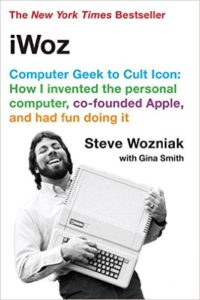 In many ways, Steve Wozniak needs no introduction. Apple’s cofounder was only 26 years old when he single-handedly designed and developed the Apple 1 computer, the product that launched Apple and started the personal computer revolution. In iWoz (public library), Wozniak provides insight into his younger years, his career, and his personal philosophy on life. He also provides valuable advice for young adults who have aspirations of following in his footsteps.
In many ways, Steve Wozniak needs no introduction. Apple’s cofounder was only 26 years old when he single-handedly designed and developed the Apple 1 computer, the product that launched Apple and started the personal computer revolution. In iWoz (public library), Wozniak provides insight into his younger years, his career, and his personal philosophy on life. He also provides valuable advice for young adults who have aspirations of following in his footsteps.
Wozniak has always been a strong advocate for children and a big supporter of public education. “If I couldn’t have been an engineer,” he says in iWoz, “I would’ve been a teacher. I believed, truly believed, that education was important. I remember my father telling me way back then that it was education that would lift me up to where I wanted to go in life, that it could lift people up in values.” According to Wired, Wozniak did work for a time as a teacher in Los Gatos through an unconventional arrangement with the school system.
With the publication of iWoz, he makes another contribution to children by providing advice to those hoping to make a dent in the world — advice that primarily concerns how to go about inventing something new. It’s a must read for young adults and parents of children interested in science and technology.
I’d like to give advice, for what it’s worth, to kids out there who are like I was. Kids who feel they’re outside the norm. Kids who feel it in themselves to design things, invent things, engineer things. Change the way people do things.
My advice has to do with what you do when you find yourself sitting there with ideas in your head and a desire to build them. But you’re young. You have no money. All you have is the stuff in your brain. And you think it’s good stuff, those ideas you have in your brain. Those ideas are what drive you, they’re all you think about.
But there’s a big difference between just thinking about inventing something and doing it. So how do you do it? How do you actually set about changing the world?
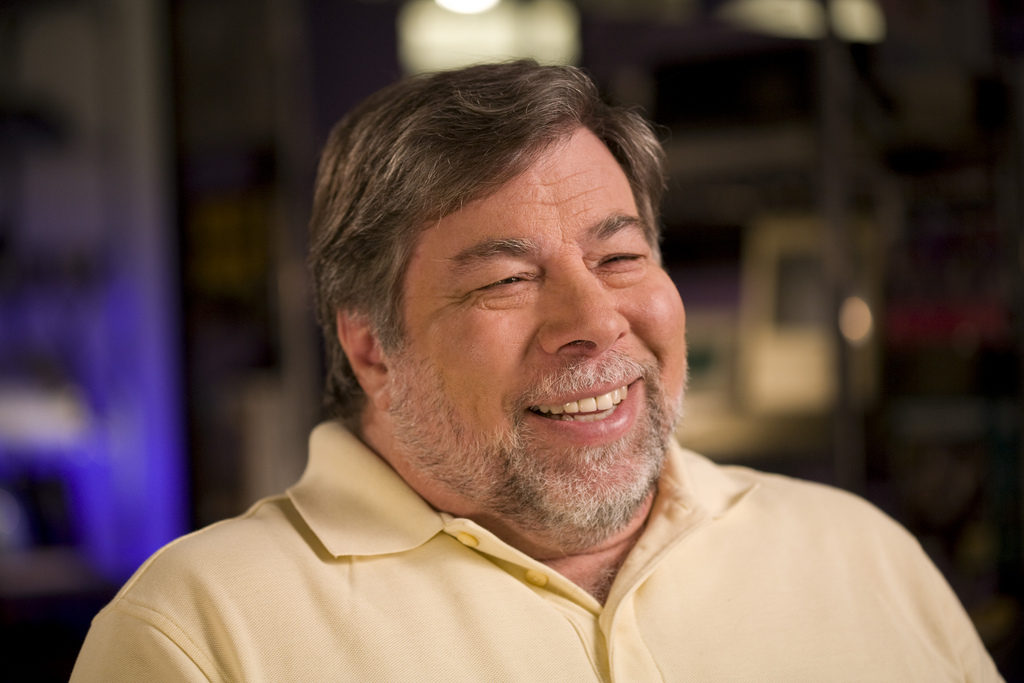
Believe in yourself
To invent anything new, Wozniak says that individuals need to believe in themselves and keep an open mind about just about everything.
First you need to believe in yourself. Don’t waver. There will be people — and I’m talking about the vast majority of people, practically everybody you’ll ever meet — who just think in black-and-white terms. Most people see things the way the media sees them or the way their friends see them, and they think if they’re right, everyone else is wrong. So a new idea — a revolutionary new product or product feature — won’t be understandable to most people because they see things so black and white. Maybe they don’t get it because they can’t imagine it, or maybe they don’t get it because someone else has already told them what’s useful or good, and what they heard doesn’t include your idea.
Don’t let these people bring you down. Remember that they’re just taking the point of view that matches whatever the popular cultural view of the moment is. They only know what they’re exposed to. It’s a type of prejudice, actually, a type of prejudice that is absolutely against the spirit of invention.
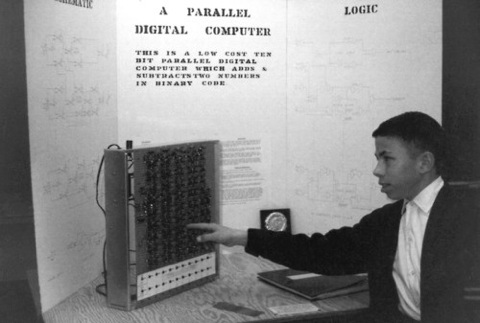
But the world isn’t black and white. It’s gray scale. As an inventor, you have to see things in gray scale. You need to be open. You can’t follow the crowd. Forget the crowd. And you need the kind of objectivity that makes you forget everything you’ve heard, clear the table, and do a factual study like a scientist would. You don’t want to jump to conclusions, take a position too quickly, and then search for as much material as you can to support your side. Who wants to waste time supporting a bad idea? It’s not worth it, that way of being stuck in your ego. You don’t want to just come up with any excuse to support your way.
Engineers have an easier time than most people seeing and accepting the gray-scale nature of the world. That’s because they already live in a gray-scale world, knowing what it is to have a hunch or a vision about what can be, even though it doesn’t exist yet. Plus, they’re able to calculate solutions that have partial values — in between all and none.
The only way to come up with something new — something world-changing — is to think outside the constraints everyone else has. You have to think outside of the artificial limits everyone else has already set. You have to live in the gray-scale world, not the black-and-white one, if you’re going to come up with something no one has thought of before.
Be an artist
Wozniak contends that inventors should view their projects in much the same way as artists view their paintings.
Most inventors and engineers I’ve met are like me — they’re shy and they live in their heads. They’re almost like artists. In fact, the very best of them are artists. And artists work best alone — best outside of corporate environments, best where they can control an invention’s design without a lot of other people designing it for marketing or some other committee. I don’t believe anything really revolutionary has ever been invented by committee. Because the committee would never agree on it!
Why do I say engineers are like artists? Engineers often strive to do things more perfectly than even they think is possible. Every tiny part or line of code has to have a reason, and the approach has to be direct, short, and fast. We build upon and build upon and build upon, just like a painter would with colors on a paintbrush or a composer would with musical notes. And it’s this reach for perfection — this striving to put everything together so perfectly, in a way no one has done before — that makes an engineer or anyone else a true artist.
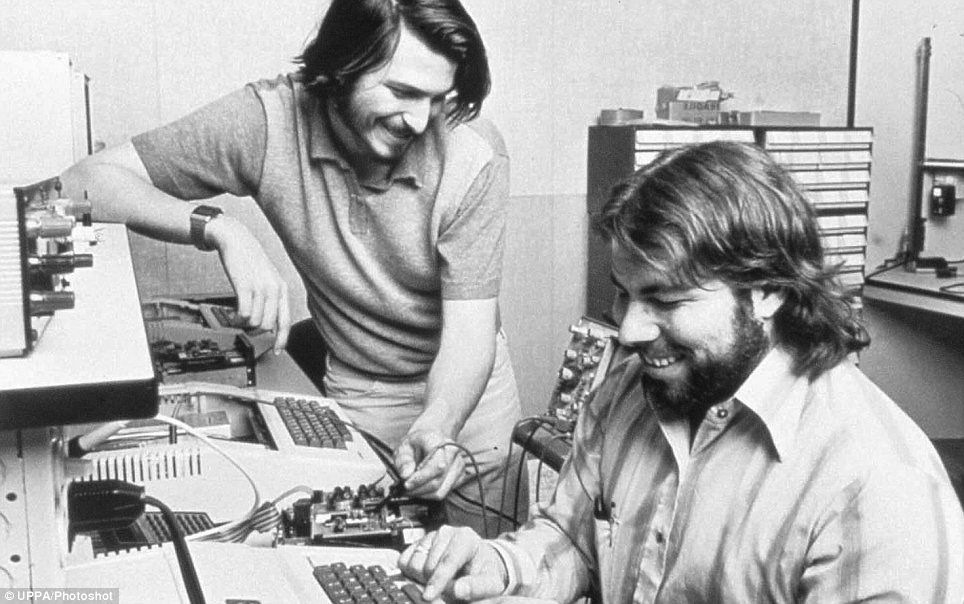
Work alone
To create new and original works, Wozniak advises individuals to work by themselves, even if it means working long hours in the evening after school or work.
If you’re that rare engineer who’s an inventor and also an artist, I’m going to give you some advice that might be hard to take. That advice is: Work alone.
When you’re working for a large, structured company, there’s much less leeway to turn clever ideas into revolutionary new products or product features by yourself. Money is, unfortunately, a god in our society, and those who finance your efforts are businesspeople with lots of experience at organizing contracts that define who owns what and what you do on your own.
But you probably have little business experience, know-how, or acumen, and it’ll be hard to protect your work or deal with all that corporate nonsense. I mean, those who provide the funding and tools and environment are often perceived as taking the credit for inventions. If you’re young inventor who wants to change the world, a corporate environment is the wrong place for you.
You’re going to be best able to design revolutionary products and features if you’re working on your own. Not on a committee. Not on a team. That means you’re probably going to have to do what I did. Do your projects as moonlighting, with limited money and limited resources. But man, it’ll be worth it in the end. It’ll be worth it if this is really, truly what you want to do — invent things. If you want to invent things that can change the world, and not just work at a corporation working on other people’s inventions, you’re going to have to work on your own projects.
When you’re working as your own boss, making decisions about what you’re going to build and how you’re going to go about it, making trade-offs as to features and qualities, it becomes a part of you. Like a child you love and want to support. You have huge motivation to create the best possible inventions — and you care about them with a passion you could never feel about an invention someone else ordered you to come up with.
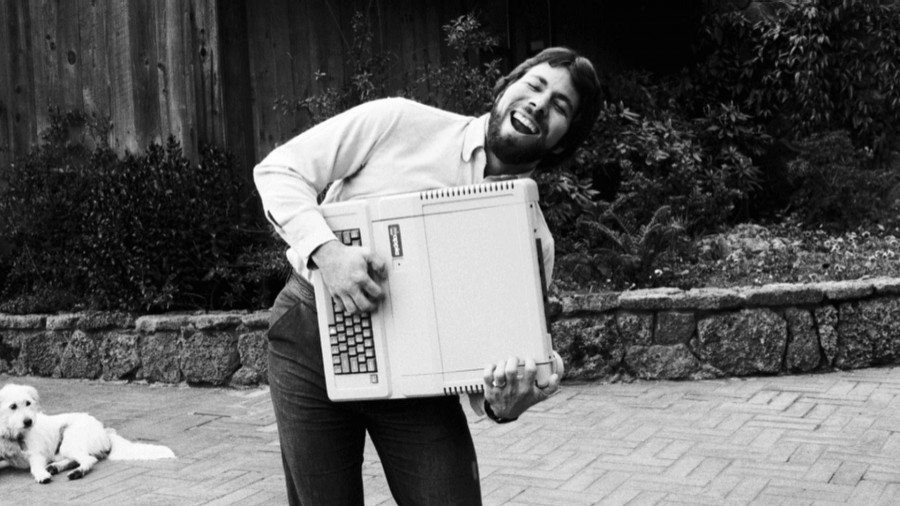
Stay the course
It’s important to be persistent. Wozniak says that inventors need to trust themselves even in the face of overwhelming opposition.
It’s so easy to doubt yourself, and it’s especially easy to doubt yourself when what you’re working on is at odds with everyone in the world who thinks they know the right way to do things. Sometimes you can’t prove whether you’re right or wrong. Only time can tell that. But if you believe in your own power to objectively reason, that’s a key to happiness. And a key confidence. Another key I found to happiness was to realize that I didn’t have to disagree with someone and let it get all intense. If you believe in your own power to reason, you can just relax. You don’t have to feel the pressure to set out and convince anyone. So don’t sweat it! You have to trust your own designs, your own intuition, and your own understanding of what your invention needs to be.
I hope you’ll be as lucky as I am. The world needs inventors — great ones. You can be one. If you love what you do and are willing to do what it takes, it’s within your reach. And it’ll be worth every minute you spend alone at night, thinking and thinking about what it is you want to design or build. It’ll be worth it, I promise.
iWoz is required reading for anyone interested in technology. For young adults who have hopes and dreams of creating new technology, Wozniak’s timeless advice is invaluable. Complement with Ed Catmull’s wisdom on embracing failure and Linda Liukas’ advice on nurturing your child’s technical imagination.
